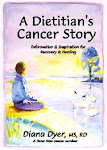And how and when and why did the use of the words dirt and soil in all their forms (noun, verb, adjective, even adverbs) become 'dirty' words?
Here are just a few examples I can think of right off the top of my head:
'dirty language'
'dirty jokes'
'dirty play/player'
'dirty politics'
'a dirty look'
'a dirty shame'
'dirty-blonde'
'oh, he is just a dirt farmer' (I once heard a world famous landscape architect use this exact term during his public presentation!)
'poor as dirt'
'dishing the dirt'
'a soiled reputation' (disgraced, corrupted)
'soiled hands'
I could go on and on....... :(
In contrast, I collect positive quotations about soil, dirt, earth, land, gardening - if you have one you love, please send it to me. I'll give you credit (and the author) and use it someday in one of my blogs. :)
While I dislike hearing either word used in a negative or disparaging manner, the truth is that dirt and soil are not equal terms, that soil is a living community, and we as members (not rulers) of this community are connected to and dependent upon on healthy, living soil to produce the healthy food needed to sustain our health and life and that of our children and grandchildren.
I consider being the steward of our farm's living soil community to be my most important and deepest responsibility.
If thinking like this, being a soil fan (even a 'fanatic' like I am), is new to you, I can give you a glimpse of what I am talking about in this short presentation From Dirt to Lifeline by Dr. Fred Kirschenmann at the recent TEDx-Manhattan talks. However, if you really want to have your eyes opened, I suggest that you read the book Dirt: The Erosion of Civilizations by David Montgomery, PhD. I have only read a few books in my adult life that I consider life-changing, and this is one of them. (Addendum - Actually I suspect all books I've read have shaped my view of life - i.e. that 10,000 piece jig-saw puzzle we are each working on - by one or two random pieces at a time, but the book Dirt added a huge coherent chunk all in one fell swoop, giving me an understanding of both the past and our future that I could see with startling clarity.)
Our land, while not abused per se for the past 20+ years before we bought it, had not been cultivated to produce this highly diverse and enormous living community underground that Dr. Kirschenmann describes in his talk. When we first looked at our soil, we had no visible earthworms, none. Now after almost three full years of organic agricultural practices on our first plot, we can see more earthworms than we can count, and that is only the big macro-life that we can see.
As someone who started a long time ago as a 'science nerd', someone who has loved chemicals and molecules and teeny, tiny organisms (those things we cannot see with the naked eye), I am that person who has loved thinking about and actually envisioning nutrients and other molecules moving throughout and being used in our body. However, at the same time when I was still young and developing ideas of what was interesting and important to me, I also went to the other end of the science spectrum and was excited about big things like the first Earth Day in 1970, learning about 'our environment' - how we were harming it or healing it, everything (I mean everything!!) I learned in my first college course in environmental sciences along with a glimpse of understanding the study of ecology and eco-systems - how everything is connected.
Today there is an area of study and practice called 'Agro-ecology', which brings everything together that has interested me during all these years, from cycling molecules and nutrients into our body from healthy soil and healthy food to healthy individuals and communities who value and participate in this healthy ecological process, starting with making compost as Dr. Kirschenmann recommends in this presentation.
I confess that this type of information really excites me. I have found myself sitting on the edge of my seat at a presentation about soil's fungi community and (almost) hyperventilating. :) I guess that means I am still a 'science nerd', but I know I am a happy 'science nerd'. Maybe I am even still a young one! :)
I hope you'll watch Dr. Kirschenmann's talk. It is not over your head. In fact, just the contrary and even more importantly, he will show you (and hopefully even excite you) about what is under your feet. I also hope that you will think about the words soil and dirt differently the next time you hear them used casually in conversation. :)
I'll leave you with a photo of my husband standing in front of the first compost we had delivered to our farm in the fall of 2009 and my most recent favorite 'soil quote'.
Many things grow in the garden that were never sown there.
~~ Thomas Fuller, Gnomologia, 1732
(found in the book Tomatoes, Garlic, and Basil by Douglas Oster)
Cultivate your life (and your soil) - you are what you grow - inch by inch, row by row,
Diana Dyer, MS, RD



2 comments:
Watched the video and now feel even more compelled to start composting at home. Thanks for sharing.
Watched the video and feel even more compelled to compost here at home. Thanks for sharing.
Post a Comment